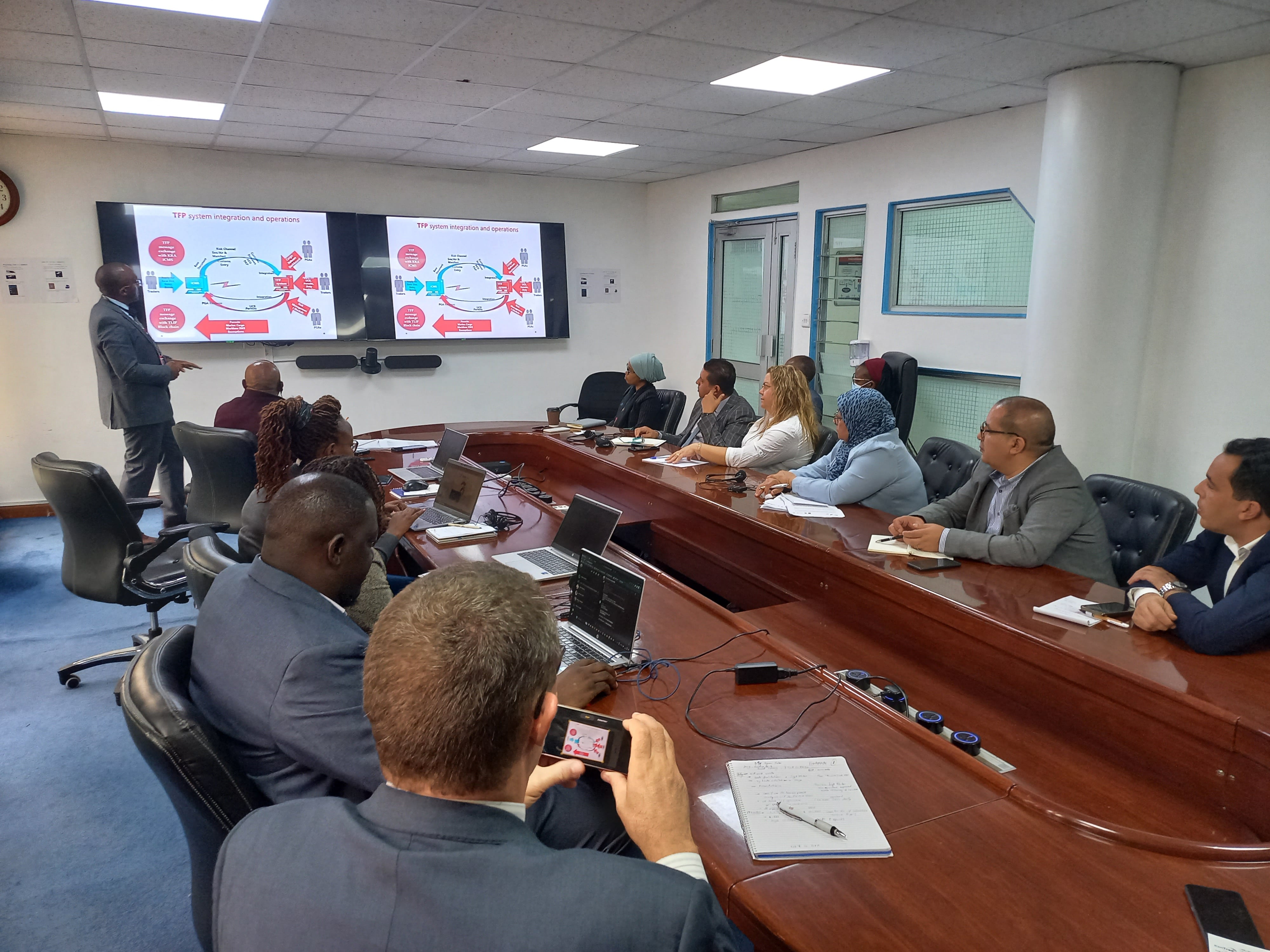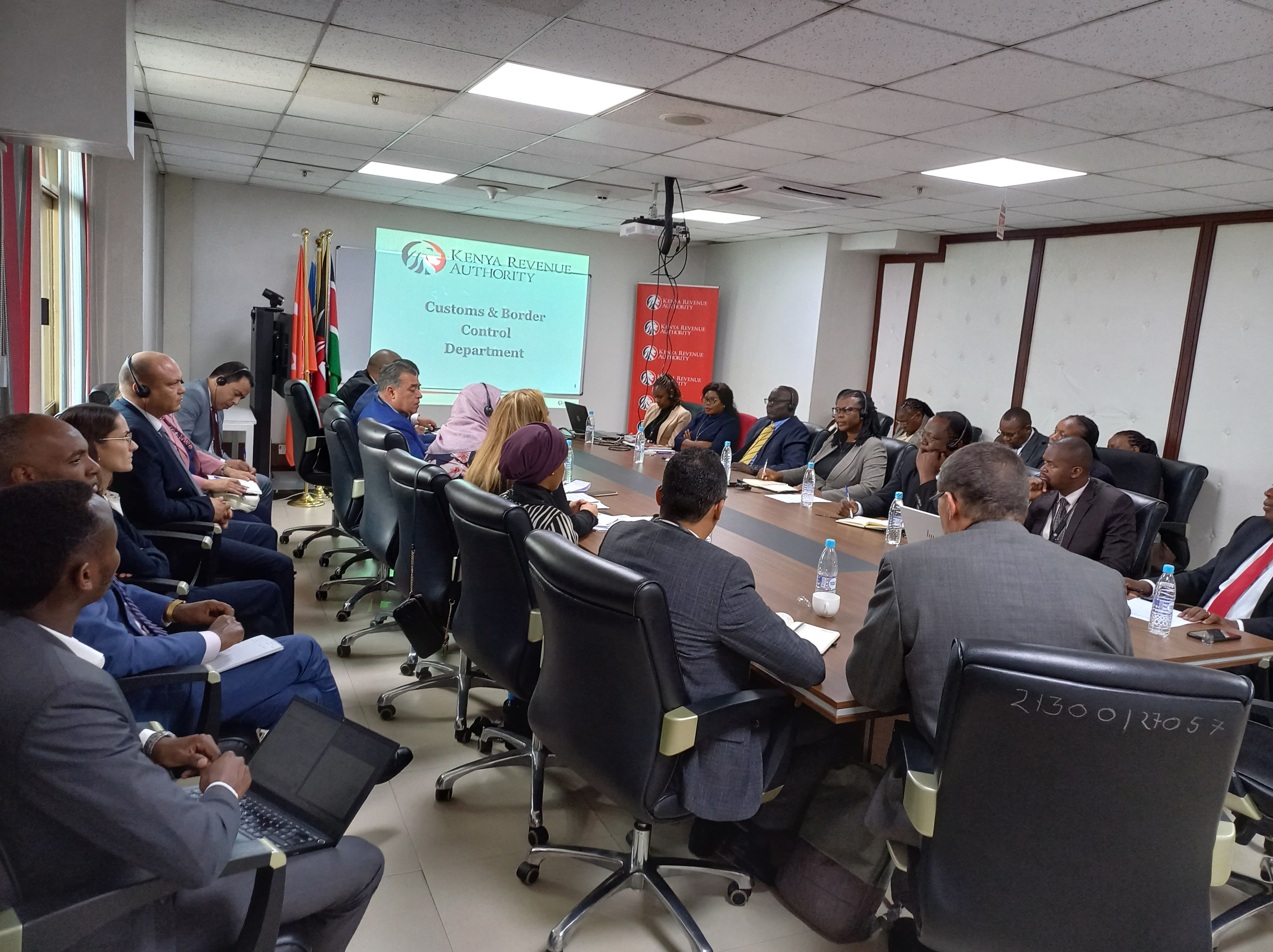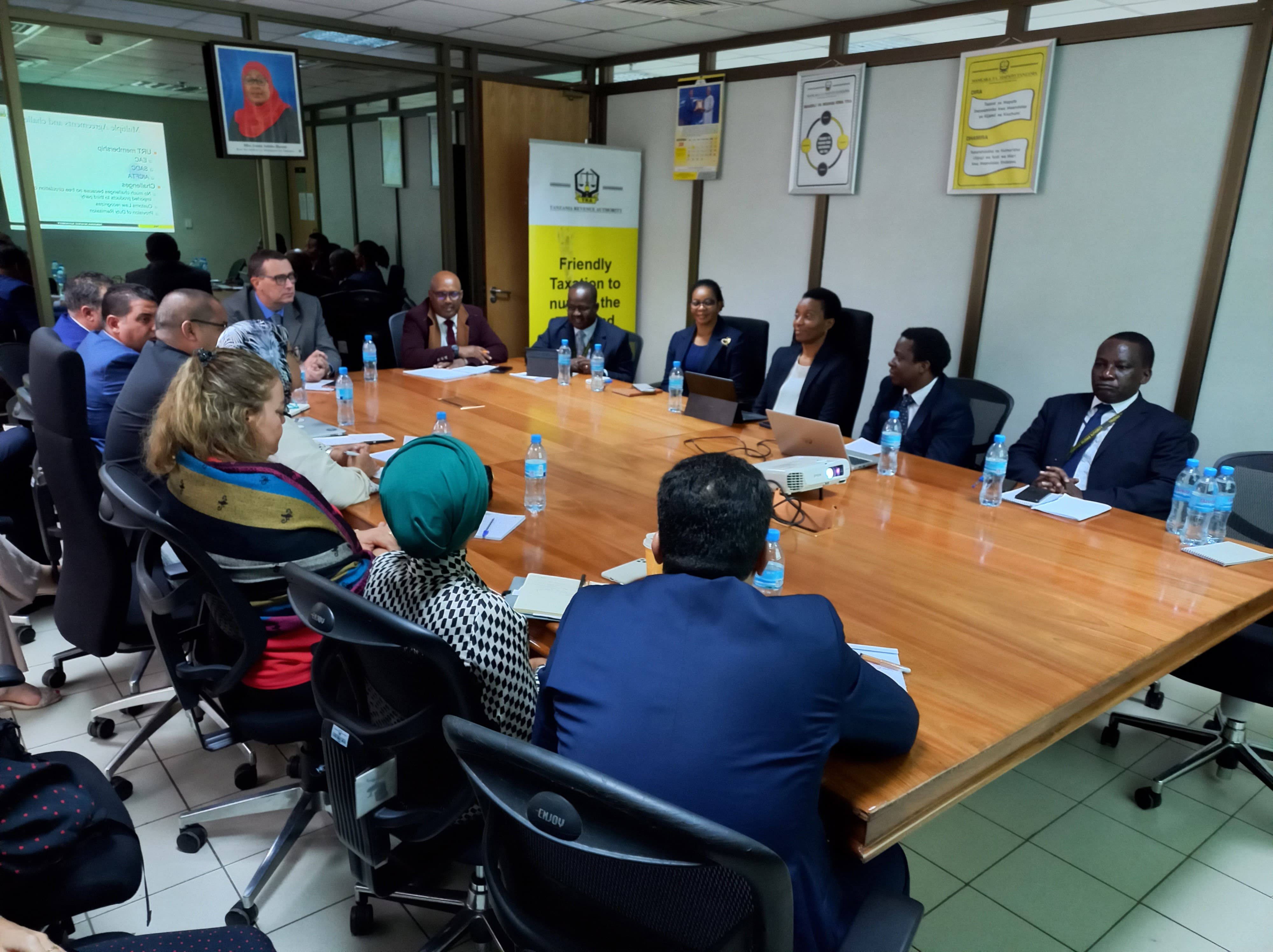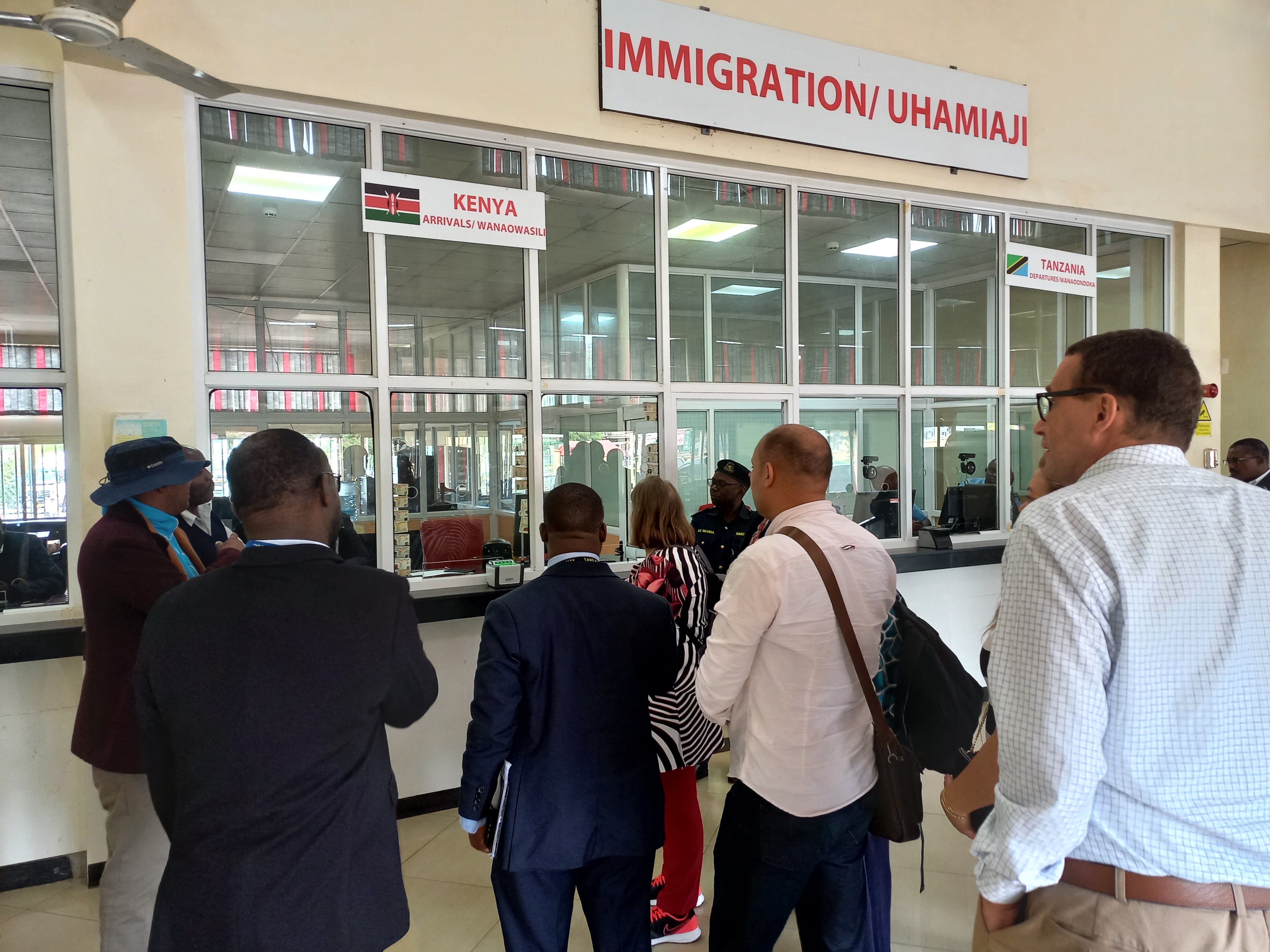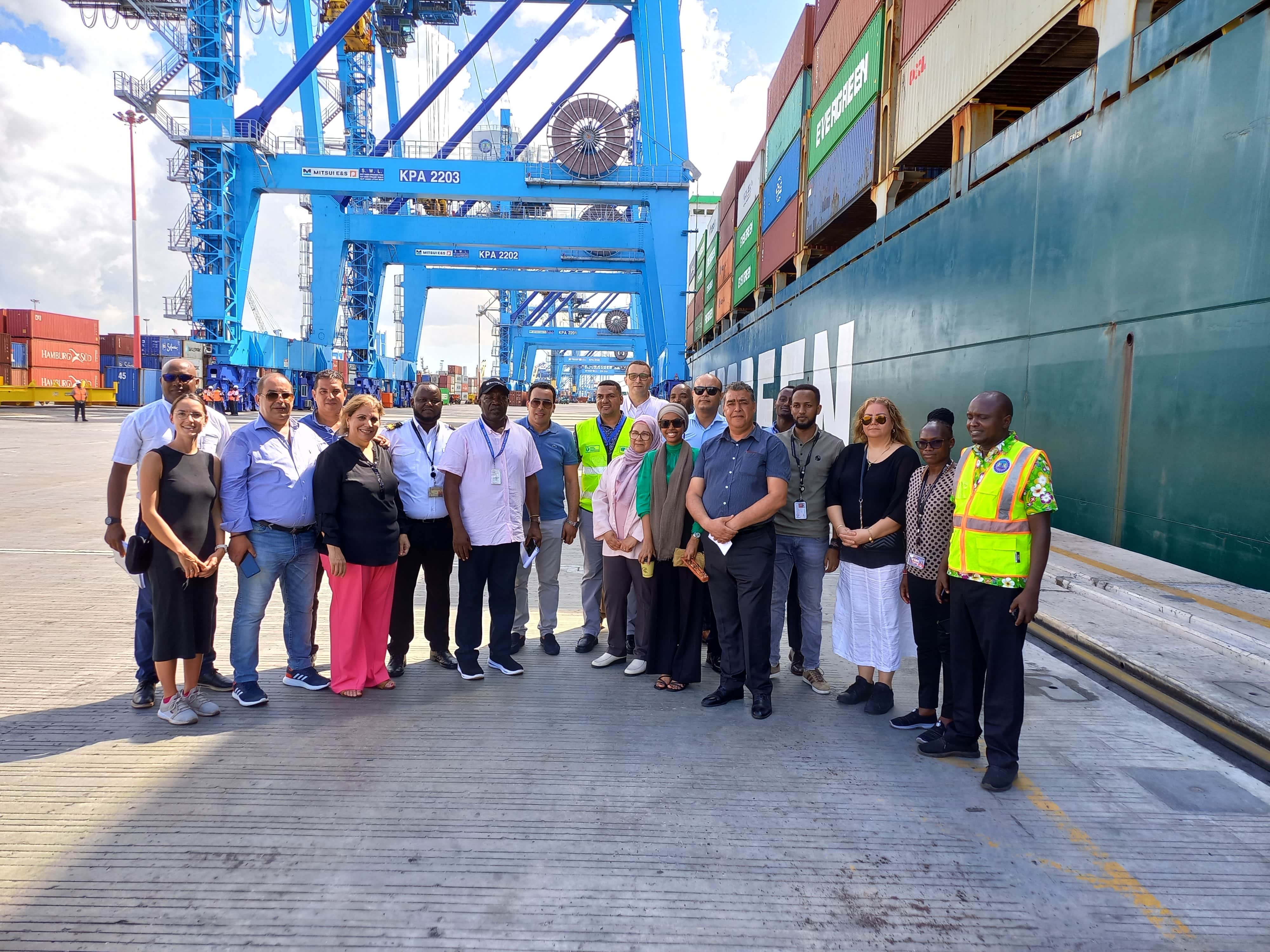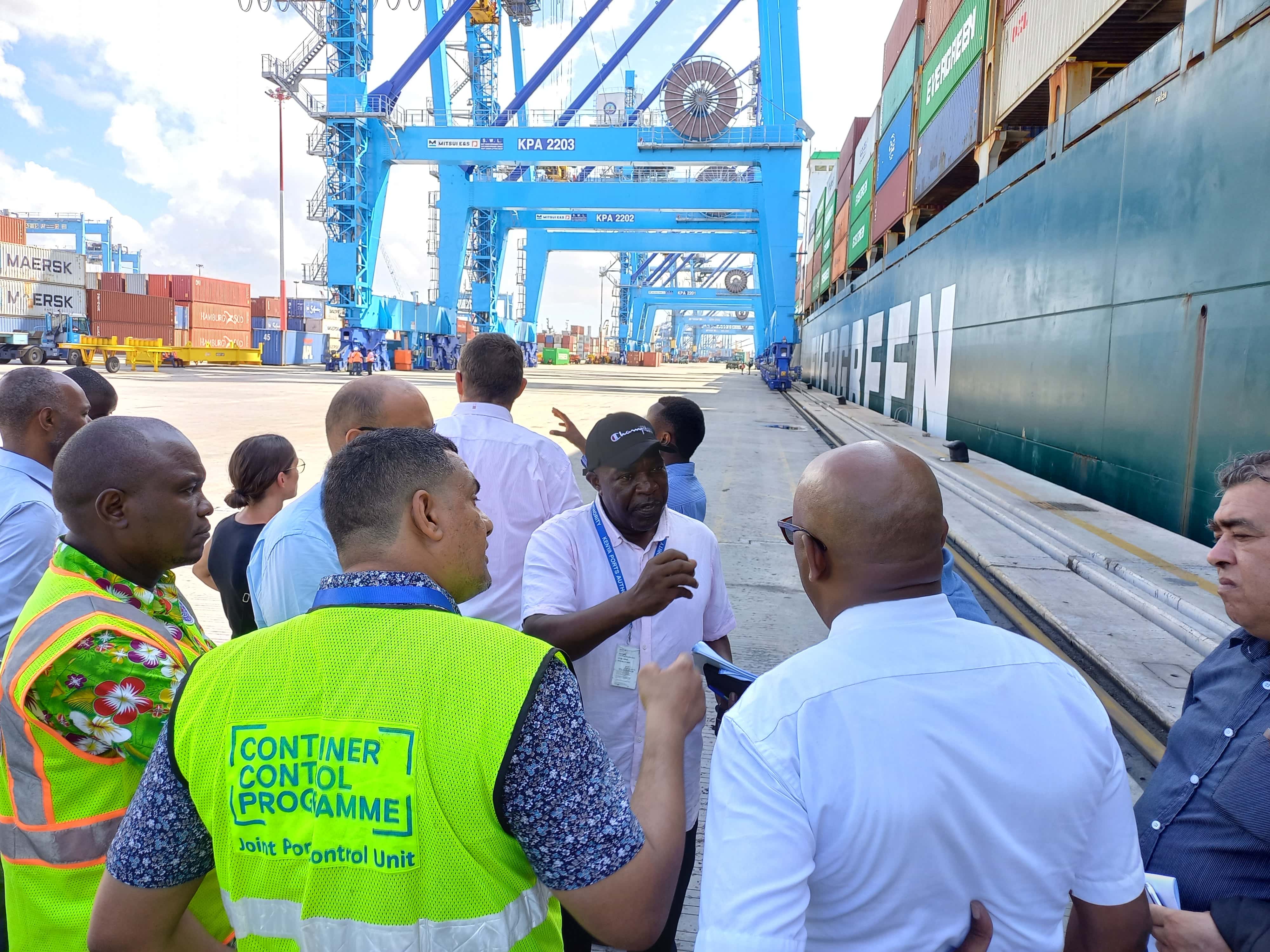The Tunisian Customs Directorate's institutional mission to Kenya and Tanzania
The Tunisian Customs Directorate's institutional mission to Kenya and Tanzania
From 6 to 13 November 2023, a high-level delegation of Tunisian Customs officials and a representative of the Ministry of Trade and Export Development (MCDE) visited Kenya and Tanzania.
The main purpose of the several meetings held was to exchange best practices in customs processes and one-stop integrated and coordinated border management in the framework of the African Continental Free Trade Area (AfCFTA) and the Common Market for Eastern and Southern Africa (COMESA) agreements. The meetings also focused on trade facilitation in the daily work of Customs authorities, and on the continental connectivity, using the corridor approach as well as the guided trade initiative (GTI) to connect the North and South-East and open new trade opportunities for Tunisian exporters. In the other direction, Tunisia’s road, and port infrastructure, as well as the proximity to Europe, make it a perfect gateway to access European market.
The Tunisian delegation met with several government agencies, including the Kenya Revenue Authority, Trademark Africa, the National Electronic Single Window System (KenTrade), the One-stop border post in Longido, and in Arusha, the Tanzania Revenue Authority, the East African Community Secretariat, as well as the GIZ representatives based there.
The Tunisian Delegation learned about the integrated customs management system (iCMS) of Kenyan Revenue Authorities, their approach to transit procedures with the application of electronic seals, and the supervision of the whole road traffic through the Regional Electronic Cargo Monitoring System and related monitoring centre at the KRA. The different systems are connected through a centralised server allowing data exchange with the regional partner, even if the iCMS and partner systems like the Tancis of the TRA are not compatible directly. The visit of Trademark Africa enabled the delegation to learn more about the corridor approach that enables regional trade and might serve as a lead for expanding the concept towards the AfCFTA connectivity in Africa. While iCMS is the proper Customs system, the single window functionality is ensured by KenTrade. The SW functions are fully compatible with ICMS and ensure that all involved agencies get the proper notifications about imports or experts, and might issue, where necessary, the relevant permits or certifications, before Customs can release the goods.
The One-Stop-Border Post (OSBP) procedures allowed to ascertain the multi-agency efforts of securing the borders of each country, i.e., Kenya on one side, and Tanzania on the other. This is achieved by unifying the inspections of the incoming cargo and trucks, as well as passengers. Both countries hold regular consultations and have set up cross border committees and relevant data sharing.
The Tunisian Delegation was warmly welcomed as well in Arusha, where the Tanzania Revenue Authority highlighted the regional integration of the EAC, but also their own regional role as an important trade route between the port of Dar-es-Salaam and the neighbouring countries, i.e., Rwanda and Burundi, but also the DRC. The TRA emphasised that although the EAC is established as a single customs territory, certain border control measures must be maintained. The EAC Secretariat subsequently confirmed that the EAC is not yet a full single market, as certain mechanisms take time to implement, for instance the financial compensation mechanisms.
The visit concluded with a visit of the advanced port facilities in Mombasa, showcasing the efficient port management, as well as highlighting the road and railroad transport infrastructure which includes an internal container handling terminal in Nairobi, thus making Mombasa the main gateway for imports and experts, also for the other EAC countries.
The visit was enabled by the Deutsche Gesellschaft für Internationale Zusammenarbeit (GIZ), commissioned by the German Federal Ministry for Economic Cooperation and Development (BMZ), in cooperation with the Tunisian Ministry of Trade and Export Development (MCDE) through the Project “Support to Trade Agreements with Africa”
